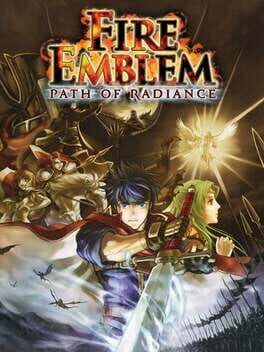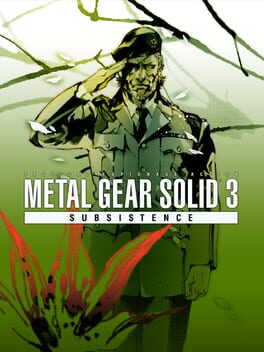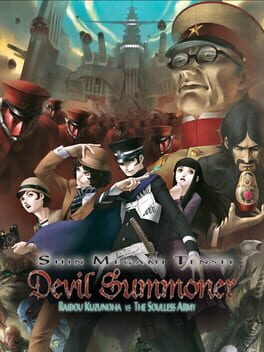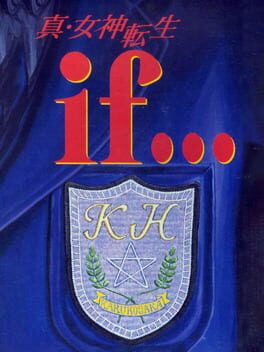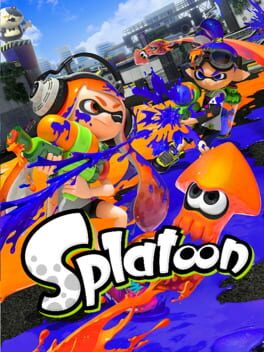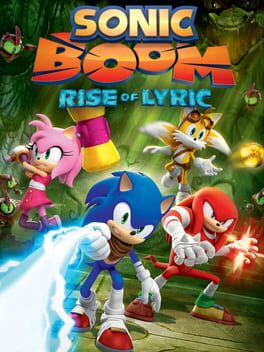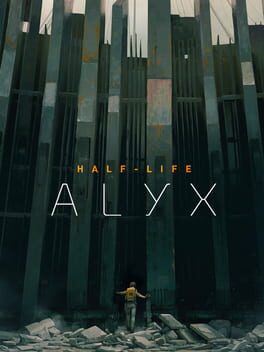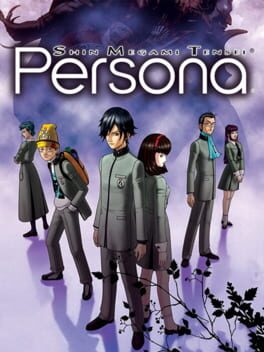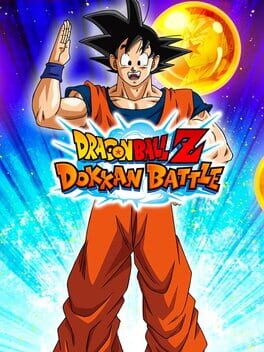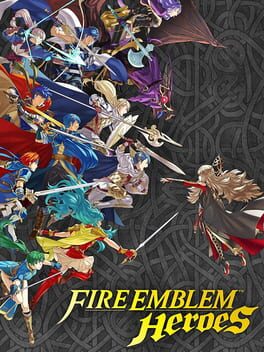HiTheHello
2007
After finishing this game for the first time at the tail end of last year, I proceeded to replay it on multiple different occasions across its different versions, with my most recent FES replay being the one where I was left a crying wreck by the end of the credits. I GUESSSSS one could say this game, with its grounded cast of characters, its themes pertaining to life and its many inevitabilities, and its protagonist's journey of self-discovery in pursuit of finding meaning within said life, has managed to emotionally resonate with me in ways that very little media have ever managed to, if any at that.
Or one could say I just really really like that cute blonde robot with the smile. She's so nice!
Or one could say I just really really like that cute blonde robot with the smile. She's so nice!
This review contains spoilers
that one scene where raidou took a wine bottle and beat the shit out of former japanese imperial spy grigori rasputin, who is also an android from the future, because he was incapable of simply not hitting on women at a bar. that's the best scene in all of megami tensei.
2010
2015
2010
2020
Most reviews of Persona 1 start and end at "wow, this gameplay fucking sucks" and… yeah that's so true. It’s overly convoluted and can be either extremely trivial or downright frustrating. But if you found yourself in a situation like me where Atlus executives unlawfully broke into your home and started injecting Megami Tensei loving juice into your water supply or thinking about checking out the Persona 2 duology, I'd recommend trying to bear it for the sake of experiencing this game's unique story and atmosphere.
The franchise is well known for using broad topics, like the importance of aspirations, the inevitability of death, the strength in truth, or resistance in the face of injustice, almost like a backdrop to push the overarching themes of emotional connection and self discovery that thematically connects the rest of the series together. For me, seeing these two ideas in their most pure state within Persona 1’s narrative was a very intriguing experience, in addition to its focus on what it means to “be your true mind.” Being the first game in the series, yeah, it’s pretty obvious that this is where you’d find where the franchise’s roots came from. But while this game does a great job in highlighting those ideas, it brings many of its own unique concepts that the series has yet to try and replicate again, most notably in its atmosphere. The much heavier focus, relative to the other games, on philosophical concepts is perfectly portrayed through dungeons with a sense of atmosphere that could only be described as “dream-like.” Hell, at times, the game goes for an approach that you’d only find within horror titles. Whether it be an apocalyptic city, a zombie infested hospital, or a forest straight out of a fairy tale, the game has many vibrant set pieces that kept me enjoying the experience.
The main storyline, while not my favorite in the series, still goes for something I wish the franchise did more often. It features a cast of characters who initially reluctantly fight together for the sake of getting down to the bottom of the shitty situation they found themselves in, but learn they must find their true selves and confront their differences as the narrative progresses. It’s a concept that I feel only Persona 2 Eternal Punishment and Persona 3 went for and I am an actual sucker for that type of writing in a piece of fiction’s cast. It makes it such a gratifying experience when you see them all come together. I also really love its use of the self-insert, silent protagonist trope. The game actively tests whether or not you’re picking up on the game’s themes through choices presented to the protagonist as a way to showcase his/your world views. It’s to the degree where it’s possible to fail the game and get a bad ending. But by picking the options that lead the cast in a better direction, from a mental standpoint, it reflects on your intuition as a player and the protagonist’s growing role as a leader.
I will admit, with regards to the side route, the Snow Queen Quest, I was absolutely not a fan. While still relatively short compared to the main route, it’s an RPG side quest story stretched to the length of a campaign and the cast isn’t engaging enough to justify it. Yukino is cool, but I feel learning the basics of her character in this route is enough to understand her arc in Innocent Sin. And I have many words to say to Ayase. None of them are nice. I’d definitely only recommend going through this if you’re one of the 18 people on the planet who completely fell in love with the game.
I’ve said in the opening that I’d recommend this game if you’re planning on checking out Persona 2 Innocent Sin and its sequel, Eternal Punishment. This is entirely because some plot beats in the duology act as a direct continuation of arcs belonging to various Persona 1 cast members. It’s definitely possible to play the duology while only knowing a vague outline of this game’s story, or even no knowledge at all, but I’d imagine those storylines would hit harder with the full experience in mind. I played Persona 1 after the duology and it made me realize in retrospect just how well Nanjo’s arc in Eternal Punishment worked, with how it combined Persona 1’s theme of learning to find direction in life with Eternal Punishment’s theme of the responsibility that comes with adulthood.
As I’ve already alluded to, I don’t find much enjoyment in the game’s actual gameplay. It’s not hard, it can just be very irritating to deal with. Regarding the battle system, it can be easily trivialized once you start finding Nuclear spells, which is what the “Megido” class of skills fall under. Earliest you can get one is level 18 on a Persona called Gozu-Tennoh. Some braindead ape at Atlus decided that nuclear spells should have absolutely insane damage scaling in comparison to other spells, which means it two shots most enemies on normal who don’t resist it. Even ignoring the battle system, a lot of dungeons can just be frustrating to go through, especially if you don’t have any experience with first person dungeon crawler RPGs. Regardless, I’d imagine the game not being very fun is an immediate deal breaker for many. And while it ultimately does restrict my enjoyment of the game in the long run, I still recommend trying it for those who hold a great deal of interest in Persona as a franchise.
Regardless of if you come out hating the game, loving it, or just simply casually enjoying and respecting it, as I do, I hope you're able to take something away from Persona as a franchise. Whether it be how far it's come, how hard it fell off, or how shitty it's always been, I feel this game deserves a lot more attention with regard to discussion of the series as a whole.
Also play Persona 2.
Side Note: If you do plan on checking out the game, try to play with the PSX music patch. Despite enjoying modern Persona’s soundtracks, I personally can’t stand the PSP port’s OST. It was changed for the sake of marketing the game to players just coming off Persona 3 and while many are divided on its quality, I’m firmly in the camp who feels it destroys a lot of what the game was trying to go for. But most importantly, it’s a great disrespect to the original composer and sound director, Hidehito Aoki, who passed away prior to this version’s release. While the patch is far from perfect, as it's a simple replacement mod and the PSP port cuts out MANY songs from the original soundtrack, I still feel that it does a decent job of retaining the original game’s vision.
The only other alternative is learning Japanese to play the original. Or playing the US PSX port, Revelations, which features a horribly sloppy localization and a whitewashed cast, so... you do you.
The franchise is well known for using broad topics, like the importance of aspirations, the inevitability of death, the strength in truth, or resistance in the face of injustice, almost like a backdrop to push the overarching themes of emotional connection and self discovery that thematically connects the rest of the series together. For me, seeing these two ideas in their most pure state within Persona 1’s narrative was a very intriguing experience, in addition to its focus on what it means to “be your true mind.” Being the first game in the series, yeah, it’s pretty obvious that this is where you’d find where the franchise’s roots came from. But while this game does a great job in highlighting those ideas, it brings many of its own unique concepts that the series has yet to try and replicate again, most notably in its atmosphere. The much heavier focus, relative to the other games, on philosophical concepts is perfectly portrayed through dungeons with a sense of atmosphere that could only be described as “dream-like.” Hell, at times, the game goes for an approach that you’d only find within horror titles. Whether it be an apocalyptic city, a zombie infested hospital, or a forest straight out of a fairy tale, the game has many vibrant set pieces that kept me enjoying the experience.
The main storyline, while not my favorite in the series, still goes for something I wish the franchise did more often. It features a cast of characters who initially reluctantly fight together for the sake of getting down to the bottom of the shitty situation they found themselves in, but learn they must find their true selves and confront their differences as the narrative progresses. It’s a concept that I feel only Persona 2 Eternal Punishment and Persona 3 went for and I am an actual sucker for that type of writing in a piece of fiction’s cast. It makes it such a gratifying experience when you see them all come together. I also really love its use of the self-insert, silent protagonist trope. The game actively tests whether or not you’re picking up on the game’s themes through choices presented to the protagonist as a way to showcase his/your world views. It’s to the degree where it’s possible to fail the game and get a bad ending. But by picking the options that lead the cast in a better direction, from a mental standpoint, it reflects on your intuition as a player and the protagonist’s growing role as a leader.
I will admit, with regards to the side route, the Snow Queen Quest, I was absolutely not a fan. While still relatively short compared to the main route, it’s an RPG side quest story stretched to the length of a campaign and the cast isn’t engaging enough to justify it. Yukino is cool, but I feel learning the basics of her character in this route is enough to understand her arc in Innocent Sin. And I have many words to say to Ayase. None of them are nice. I’d definitely only recommend going through this if you’re one of the 18 people on the planet who completely fell in love with the game.
I’ve said in the opening that I’d recommend this game if you’re planning on checking out Persona 2 Innocent Sin and its sequel, Eternal Punishment. This is entirely because some plot beats in the duology act as a direct continuation of arcs belonging to various Persona 1 cast members. It’s definitely possible to play the duology while only knowing a vague outline of this game’s story, or even no knowledge at all, but I’d imagine those storylines would hit harder with the full experience in mind. I played Persona 1 after the duology and it made me realize in retrospect just how well Nanjo’s arc in Eternal Punishment worked, with how it combined Persona 1’s theme of learning to find direction in life with Eternal Punishment’s theme of the responsibility that comes with adulthood.
As I’ve already alluded to, I don’t find much enjoyment in the game’s actual gameplay. It’s not hard, it can just be very irritating to deal with. Regarding the battle system, it can be easily trivialized once you start finding Nuclear spells, which is what the “Megido” class of skills fall under. Earliest you can get one is level 18 on a Persona called Gozu-Tennoh. Some braindead ape at Atlus decided that nuclear spells should have absolutely insane damage scaling in comparison to other spells, which means it two shots most enemies on normal who don’t resist it. Even ignoring the battle system, a lot of dungeons can just be frustrating to go through, especially if you don’t have any experience with first person dungeon crawler RPGs. Regardless, I’d imagine the game not being very fun is an immediate deal breaker for many. And while it ultimately does restrict my enjoyment of the game in the long run, I still recommend trying it for those who hold a great deal of interest in Persona as a franchise.
Regardless of if you come out hating the game, loving it, or just simply casually enjoying and respecting it, as I do, I hope you're able to take something away from Persona as a franchise. Whether it be how far it's come, how hard it fell off, or how shitty it's always been, I feel this game deserves a lot more attention with regard to discussion of the series as a whole.
Also play Persona 2.
Side Note: If you do plan on checking out the game, try to play with the PSX music patch. Despite enjoying modern Persona’s soundtracks, I personally can’t stand the PSP port’s OST. It was changed for the sake of marketing the game to players just coming off Persona 3 and while many are divided on its quality, I’m firmly in the camp who feels it destroys a lot of what the game was trying to go for. But most importantly, it’s a great disrespect to the original composer and sound director, Hidehito Aoki, who passed away prior to this version’s release. While the patch is far from perfect, as it's a simple replacement mod and the PSP port cuts out MANY songs from the original soundtrack, I still feel that it does a decent job of retaining the original game’s vision.
The only other alternative is learning Japanese to play the original. Or playing the US PSX port, Revelations, which features a horribly sloppy localization and a whitewashed cast, so... you do you.
2017
This game deserves some amount of respect for how it consistently maintains Fire Emblem's popularity. Not just in the sense that it keeps the brand alive, but for how it shows care for every entry in the series, including the ones lesser known in the eyes of the west. It serves as an amazing gateway into the older games for newer fans just coming off the modern titles. Hell, it definently served as inspiration for me to go through and play almost every major entry in the franchise. And I adore how there's genuine passion shared amongst the infinitely talented artists who participate, some of who take it upon themselves to draw fan art for various FE characters. Too bad its a gacha game, so its going to hell when its servers shut down, but I am ultimately glad for its existence.
2012
Persona 4 was probably the most miserable I have ever been while going through a main storyline in a video game in recent memory. Coming fresh off Persona 3, a game that I adored greatly for just how character focused its main story was (it wasn’t even my favorite video game at the time of starting P4), and hearing the sheer amount of praise this one received on Twitter during its re-release on Steam, I was shocked at how mind numbing this was as an experience.
Despite the intriguing premise, the main narrative is something I could only describe as factory produced. It quickly establishes a basic formula, that greatly detracts from both the emotional depth of the themes the story attempts to portray and the intricacy of the murder mystery, to create a predictable, repetitive slog of a campaign. Outside of an incident towards the end of the game, there’s little to no tension as you go through arcs with the exact same structure ad nauseam. Once the cast decide to devote themselves to catching the killer after the first arc, the “mystery” element quickly devolves into basic, deductive reasoning with no creative input required.
P4 decided to change from P3 how it would handle the time between each major event within the story. In P3, this time was filled with the cast’s introspection regarding their current circumstances and the further development of their characters arcs. In P4, this is replaced with wacky, anime high schooler hijinks that dwells more on the overall vibe between the cast rather than the individual journeys of each character. And this approach isn’t necessarily a bad thing. I can respect the greater focus on an upbeat tone, as I actually think it works pretty well and distinguishes this game from any other in this regard. And I can see why this is something that’s endeared countless people to this game. To its credit, I can say a lot of these moments do help the Investigation Team feel like a genuine group of friends. My biggest issue would lie in the fact that many of these scenes are unfunny at best and blatantly problematic at worst.
Whether it be the camping trip, where we see Yosuke blatantly accuse a sexually confused Kanji of planning to “do things” to him in his sleep solely because he’s potentially interested in men. Or in the next scene, where Yosuke pressures his female friends into wearing swimsuits so he can gawk at them. Or the cultural festival, where Yosuke signs them up for a swimsuit competition without their consent, despite the fact that one of them has made it very clear that they are extremely conscious about their feminine body... ᴵ’ᵐ ⁿᵒᵗᶦᶜᶦⁿᵍ ᵃ ᵗʳᵉⁿᵈ ʰᵉʳᵉ...
In conjunction with my lack of care for the goofy antics and the narrative’s lack of focus on organic characterization, it leaves the main story itself feeling incredibly vapid. You may be thinking “god fucking damn, he hates this game. 3/5 stars? Stop lying 😭” and yeah, I think that myself sometimes too. But I do have to remind myself that the underlying qualities of Persona 4 are really fucking good.
I think most social links do an amazing job at genuinely pushing the messages the game wants to communicate. In particular, I think they fantastically highlight the importance of self confrontation; the difficulties of acknowledging our own faults, the pain that comes with, and the betterment that we attain as a result. These stories contain the exact heartfelt writing I look for in this franchise, some of them still being among my favorites to this day. Shoutout to Dojima and Kanji in particular. My fuckin beloveds.
And I find the atmosphere, while not being something I personally clicked with, is still something I greatly respect. It’s what you’ll hear literally everyone praise this game for and for a damn good reason. A comfy small town is a genius idea that heavily contrasts with the typical big city environments we see from this franchise. The game does a good job at occasionally meshing the setting of Inaba with the motivation of individual characters and other elements within the story. And the upbeat J-Pop tracks of the overworlds sell the feel-good nature of the game’s tone perfectly.
Talking about Persona 4 makes me realize that it’s just… hard for me to talk about this game without comparing it to other entries within the series. It's hard to look back in retrospect without thinking about how this game represents everything I dislike about the series and its current direction. Not made anymore easy when recognizing that this is still technically a follow up to my favorite game ever. It turns many of Persona 3’s captivating ideas that were used to push its unique themes (The Fool’s Journey, the calendar system, the overall gameplay loop) into formulaic elements to craft a narrative that has little in common with Persona 3. And this is something that I find continues to plague the series, as Persona 5 occasionally falls into the same trappings. But at the end of the day, it’s still important for me to recognize the strengths of Persona 4. With the charming atmosphere of Inaba and consistent character writing, I still find it to be a competent, standalone game. And regardless of my faults with what I think is a flawed approach, I can still see why this could be someone’s favorite game ever.
I plan on revisiting Persona 4 some day, but through the original PS2 version. I’ve seen many discussions online regarding how Golden’s added scenes heavily detract from the atmosphere of the game. Mostly through how Inaba is now seemingly only an hour drive away from the biggest attractions in Japan. And the added padding in general is something I never really cared for. It’s important to me, as like I said earlier in the review, Persona 4’s atmosphere is something that I didn’t really click with, despite how much I respect the approach. I hope that playthrough helps me focus on this game’s strengths, as this is something that I want to like, despite the constant complaining I direct at it.
Despite the intriguing premise, the main narrative is something I could only describe as factory produced. It quickly establishes a basic formula, that greatly detracts from both the emotional depth of the themes the story attempts to portray and the intricacy of the murder mystery, to create a predictable, repetitive slog of a campaign. Outside of an incident towards the end of the game, there’s little to no tension as you go through arcs with the exact same structure ad nauseam. Once the cast decide to devote themselves to catching the killer after the first arc, the “mystery” element quickly devolves into basic, deductive reasoning with no creative input required.
P4 decided to change from P3 how it would handle the time between each major event within the story. In P3, this time was filled with the cast’s introspection regarding their current circumstances and the further development of their characters arcs. In P4, this is replaced with wacky, anime high schooler hijinks that dwells more on the overall vibe between the cast rather than the individual journeys of each character. And this approach isn’t necessarily a bad thing. I can respect the greater focus on an upbeat tone, as I actually think it works pretty well and distinguishes this game from any other in this regard. And I can see why this is something that’s endeared countless people to this game. To its credit, I can say a lot of these moments do help the Investigation Team feel like a genuine group of friends. My biggest issue would lie in the fact that many of these scenes are unfunny at best and blatantly problematic at worst.
Whether it be the camping trip, where we see Yosuke blatantly accuse a sexually confused Kanji of planning to “do things” to him in his sleep solely because he’s potentially interested in men. Or in the next scene, where Yosuke pressures his female friends into wearing swimsuits so he can gawk at them. Or the cultural festival, where Yosuke signs them up for a swimsuit competition without their consent, despite the fact that one of them has made it very clear that they are extremely conscious about their feminine body... ᴵ’ᵐ ⁿᵒᵗᶦᶜᶦⁿᵍ ᵃ ᵗʳᵉⁿᵈ ʰᵉʳᵉ...
In conjunction with my lack of care for the goofy antics and the narrative’s lack of focus on organic characterization, it leaves the main story itself feeling incredibly vapid. You may be thinking “god fucking damn, he hates this game. 3/5 stars? Stop lying 😭” and yeah, I think that myself sometimes too. But I do have to remind myself that the underlying qualities of Persona 4 are really fucking good.
I think most social links do an amazing job at genuinely pushing the messages the game wants to communicate. In particular, I think they fantastically highlight the importance of self confrontation; the difficulties of acknowledging our own faults, the pain that comes with, and the betterment that we attain as a result. These stories contain the exact heartfelt writing I look for in this franchise, some of them still being among my favorites to this day. Shoutout to Dojima and Kanji in particular. My fuckin beloveds.
And I find the atmosphere, while not being something I personally clicked with, is still something I greatly respect. It’s what you’ll hear literally everyone praise this game for and for a damn good reason. A comfy small town is a genius idea that heavily contrasts with the typical big city environments we see from this franchise. The game does a good job at occasionally meshing the setting of Inaba with the motivation of individual characters and other elements within the story. And the upbeat J-Pop tracks of the overworlds sell the feel-good nature of the game’s tone perfectly.
Talking about Persona 4 makes me realize that it’s just… hard for me to talk about this game without comparing it to other entries within the series. It's hard to look back in retrospect without thinking about how this game represents everything I dislike about the series and its current direction. Not made anymore easy when recognizing that this is still technically a follow up to my favorite game ever. It turns many of Persona 3’s captivating ideas that were used to push its unique themes (The Fool’s Journey, the calendar system, the overall gameplay loop) into formulaic elements to craft a narrative that has little in common with Persona 3. And this is something that I find continues to plague the series, as Persona 5 occasionally falls into the same trappings. But at the end of the day, it’s still important for me to recognize the strengths of Persona 4. With the charming atmosphere of Inaba and consistent character writing, I still find it to be a competent, standalone game. And regardless of my faults with what I think is a flawed approach, I can still see why this could be someone’s favorite game ever.
I plan on revisiting Persona 4 some day, but through the original PS2 version. I’ve seen many discussions online regarding how Golden’s added scenes heavily detract from the atmosphere of the game. Mostly through how Inaba is now seemingly only an hour drive away from the biggest attractions in Japan. And the added padding in general is something I never really cared for. It’s important to me, as like I said earlier in the review, Persona 4’s atmosphere is something that I didn’t really click with, despite how much I respect the approach. I hope that playthrough helps me focus on this game’s strengths, as this is something that I want to like, despite the constant complaining I direct at it.
